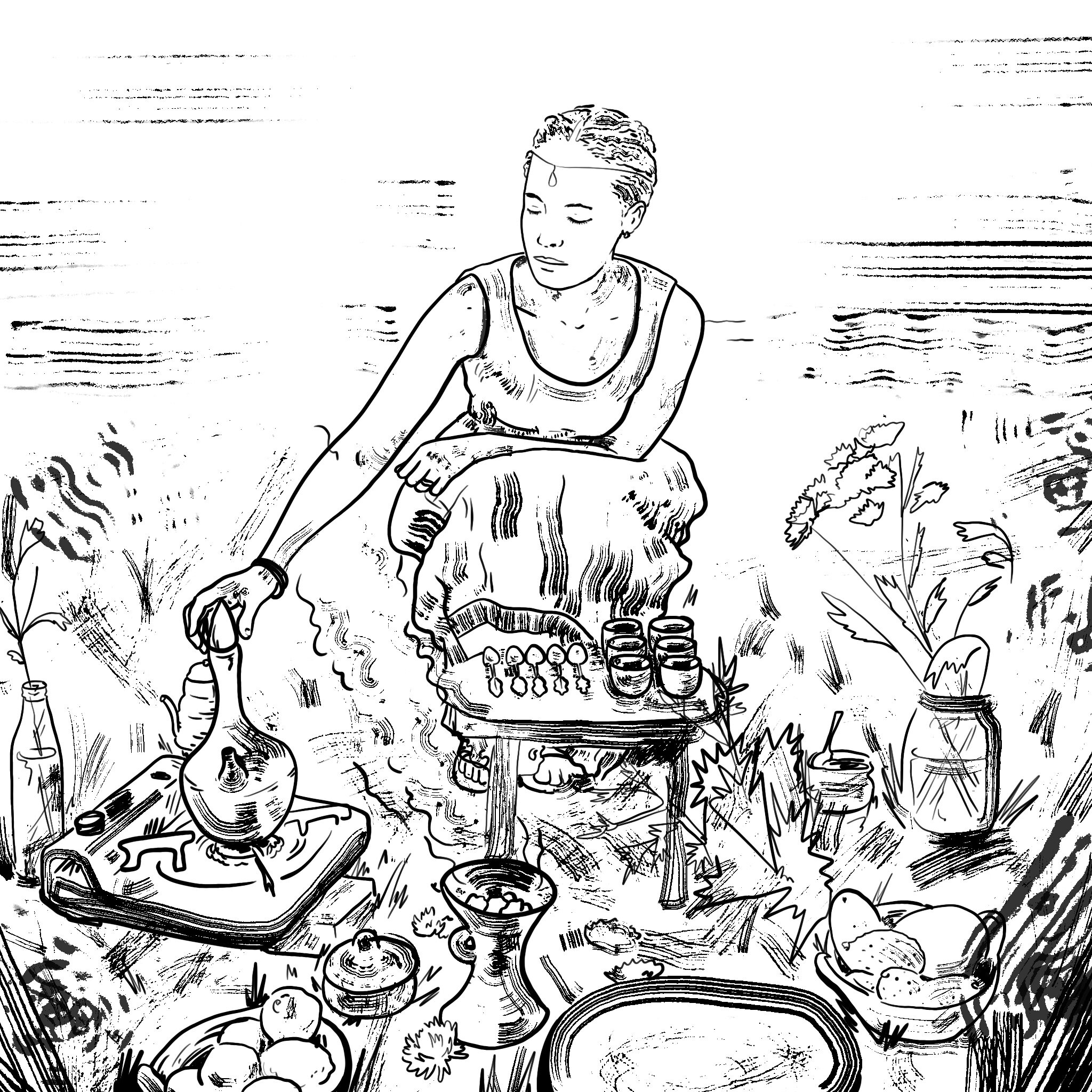Culinary Journeys:
Helina Tesega
Our new feature, Culinary Journeys focuses on chefs who have migrated to the United Kingdom, in order to display how migration continues to shape the country’s culinary landscape, and thus highlight the importance of diversity within the hospitality sector.
We recently spoke with cook and celebrated Ethiopian supper club host, Helina Tesega. Originally from Ethiopia, Helina migrated to Shanghai in her early twenties where she started Eat Ethio, first as a market concept, before relocating to Hong Kong where it developed into a private dining and pop-up concept, combining her Mum’s Ethiopian recipes with modern cooking techniques. She moved to London in 2017 and has since collaborated on a series of events, kicking off with Analogue Foundation at Giant Steps, an Ethiopian celebration curated by musician Rahel Debebe-Dessalegne, in which guests were treated to a selection of Eat Ethio dishes, alongside a soundtrack of original Ethio-Jazz 45s (supplied by her DJ husband, Scott) as well as performances from bands and dancers throughout the event.
How would you describe your cooking style?
My cooking style is fresh, nutritious, and slow cooked. My mission is to portray the rich, vibrant food and culture of Ethiopia. So many people have this image of Ethiopia, largely based on what they see in mainstream media, which tends to be one sided. It’s quite frustrating, because the country is much more than that.
The foundation of my cooking comes from my Mum. She is such a good cook, and so open-minded. She is very conscious of the healing powers of food and often makes natural remedies, and this is something central to my cooking practice. I am also not afraid of slow cooking. Depth of flavour, so that you don’t burn your tongue, is the reason it often takes so long to cook Ethiopian food, it’s a labour of love. With our national berbere spice mix, it often contains around 20 ingredients and has to be cooked for a long time.
How has your migration affected your cooking practice?
I have a really deep interest in how our ancestors developed recipes, where their ingredients came from, and to what extent they became or were considered ‘traditional’. This openness to cultural exchange, in many respects, was something I was exposed to in China. In Hong Kong, everyone is always looking for something new, something different. The way I set my supper clubs up meant that I would always have different people who were often strangers coming together, to not only share an Ethiopian meal, but to have a space to share different aspects of their cultures as well. This is something I want to replicate in the UK.
Have you had to change or adapt your cooking as you’ve lived in different places?
When I was living in China, I served Ethiopian Wot (stews) with rice, which worked well. In China, eating with your hands is considered dirty and often makes people feel uncomfortable. I recognised that it was equally as acceptable in my culture to eat like that as it was to theirs not to. At the time, it was really difficult to get teff to make injera, so I knew I had to adapt. I made compromises in my cooking and this has influenced my approach to cooking Ethiopian dishes wherever I am in the world, for example here in the UK, I tend to cook with seasonal British ingredients.
So I guess in many ways I’m not conventional, where as Ethiopian cuisine tends to normally stick to its traditional format. However, I draw the line at flavour. Ethiopian cuisine is very delicate and demands a lot of attention and I would never compromise the flavour of the dish.
How did you start incorporating music into Eat Ethio & what do you think it brings to your brand?
My husband and I collect original Ethiopian records in an attempt to preserve the culture and hope that one day, we can share it with our son and future generations. At our supper clubs, everything from the food to the visuals, music, coffee, and even the scent is there for a reason. Eat Ethio is so much more than just the food, it is everything around it as well. Music is key. In Hong Kong, we ran a monthly event at a listening room run by Potato Head, which became really popular.
What do you think about the relationship between the hospitality industry and migration?
I can’t imagine London not having such a diverse food scene. One of the reasons we are all here is because of what London offers… to experience all of that culture, and without it, it just wouldn’t be London. For me, immigrating here has been a tough journey. I can’t even begin to imagine how difficult it would be with a stricter system. People have no idea of the reality of how the immigration system works here if they don’t need to apply. The feeling of being so unwanted and unwelcome, and that you are a threat to the country’s resources is horrible.
As a Black woman, can you describe your experiences of the hospitality industry?
I haven’t per se worked in a particular establishment, except when I was collaborating with restaurants. However yes, perhaps more than those collaborations, I’ve experienced the hospitality world from the days when I was running my supper club. In terms of inclusivity, I was lucky enough in Hong Kong to have been seen as an asset and given a voice to contribute to the diverse food scene there. It was a welcoming environment, obviously it’s a very international place and as such has a strong foodie culture, hence people were always eager to experience something different and diverse and a lot of cities could learn from that.
I always had the expectation of London being so diverse which it is but it’s not well integrated, as a customer at many restaurants that I consider to have similar values, I can often be the only one there including the kitchen staff. In Asia, I kind of accepted that I’d often be the only Black person, but I didn’t expect that here.
See Helina’s recipe for Ethiopian drink, Biriz. Here
Illustrations © Diogo Rodrigues







